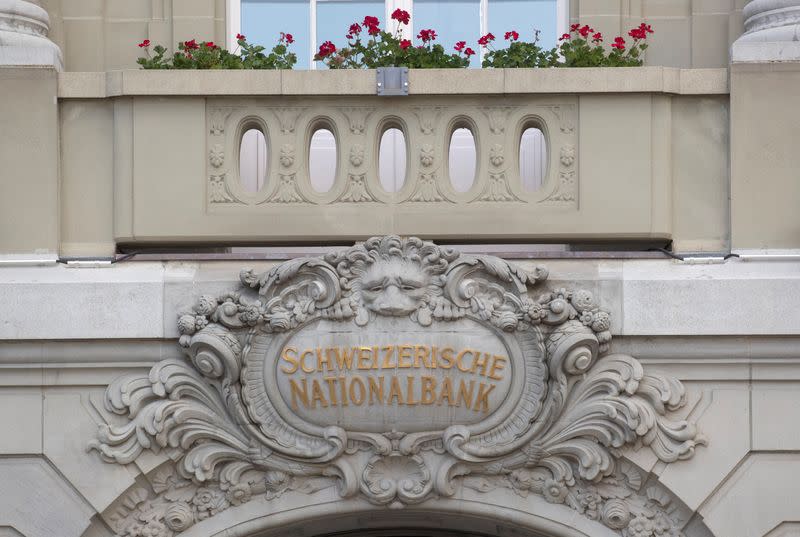Swiss National Bank chairman says inflation 'far too high'

By John Revill
ZURICH (Reuters) -Fighting inflation and ensuring price stability is "absolutely essential", Swiss National Bank (SNB) Chairman Thomas Jordan said on Friday, adding that current levels of price increases were far too high.
Bringing inflation down would become more difficult with companies more readily passing on price increases and wages increasing, Jordan told a panel at the World Economic Forum in Davos.
Jordan's comments could be seen as a hint from the SNB of further interest rate rises this year. The central bank raised its policy interest rate three times in 2022 with analysts expecting rates to rise again from the current level of 1%.
"Inflation is far too high. It is negative not only for the functioning of the economy, it is very negative especially for lower income classes," Jordan said.
"The population doesn't like inflation, so ... the focus on price stability for central banks is absolutely essential."
Although low by international standards, Swiss inflation rose to 2.8% last year, outside the SNB's price stability target for prices to rise by up to 2% annually.
The SNB declined to comment on Friday
Jordan said he expected inflation around the world to decline because of the base effect and as energy prices come down but core inflation, which removes the price of food and energy, would remain stubborn.
Reducing inflation would be hard, he said, adding that it was difficult to predict whether it could be done without triggering a recession.
In Switzerland and everywhere, Jordan said he saw a change in the way companies dealt with price increases, while wages were rising.
"They don’t hesitate any more to increase their prices. That is different to two or three years ago, and that is also a signal it is not that easy to bring inflation back to 2%," he said.
"Once inflation is high, the pressure coming from wages is here and it is proof it will not be that easy everywhere to bring inflation down quickly," he said.
(Reporting by John Revill; Editing by Noele Illien, Robert Birsel)

 Yahoo Finance
Yahoo Finance 